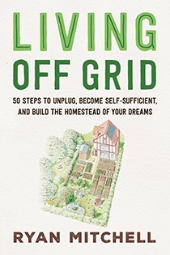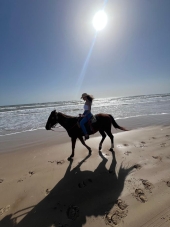Over at The Tiny Life website, Ryan Mitchell, author of
Living Off Grid: 50 Steps to Unplug, Become Self-Sufficient, and Build the Homestead of Your Dreams, put together "20 Tips And Tricks For Successful Off-Grid Living." A sample of the tips are below:
1. Understand Off-Grid Laws And Regulations
Knowing how to go off grid legally starts with learning how to navigate local laws and regulations. Zoning laws, waste disposal requirements, and building codes vary depending on your state and county.
They’ll also impact everything from your right to build a home, to the ability to drill a well or clear land. The sheer number of things local laws and regulations will affect makes understanding them one of the most crucial off-grid homestead tips I have to offer.
2. Pick The Right Location
The next off grid tip I want to share is to take your time in picking the right location. Sure, it sounds simple. However, choosing the wrong location can leave you drowning in red tape. And in addition to understanding the local laws and regulations, you’ll need to consider the more practical aspects of living in a given area.
Factors like the climate, growing zones, and local culture will directly affect your experiences. Choosing the right location is one of my off-grid home tips that will either make or break your homestead before you even get started.
3. Secure An Off-Grid Water Source
It’s impossible to make a list of off-grid survival tips without addressing water. Water is a necessity, so you’ll need a consistent, year-round supply for drinking, bathing, cleaning, and irrigation. There are a few different water sources you can use, including rain, well, and surface water.
Just remember: the work doesn’t end with acquisition. You’ll also need to work on your filtration and storage systems, making sure everything has a backup in case of emergencies. Trust me, you don’t want a drought bringing your setup to a screeching halt.
4. Choose The Right Power Setup
When first learning how to live off the grid, the idea of being on the hook for all of your power needs can feel daunting. However, your power system has a direct impact on how comfortable and functional your off-grid setup is, and ensuring it holds up to your daily needs is a must.
Solar energy is by far the most popular and one of the most dependable, but it has its limitations. Storms can come in at any time, leaving you without sunlight — and power — for days. That’s why I recommend a combination of solar panels, wind turbines, and biodiesel or gas generators.
Check out the rest of his advice here.







